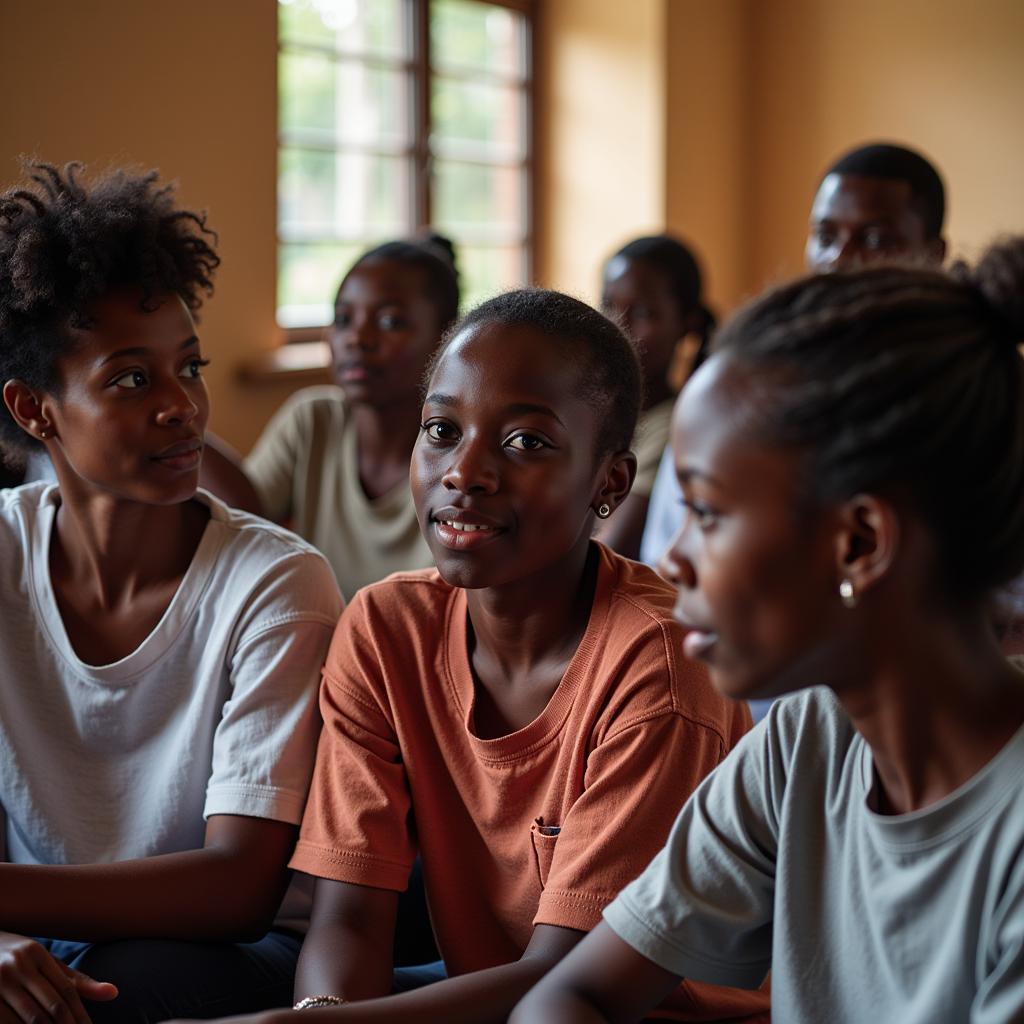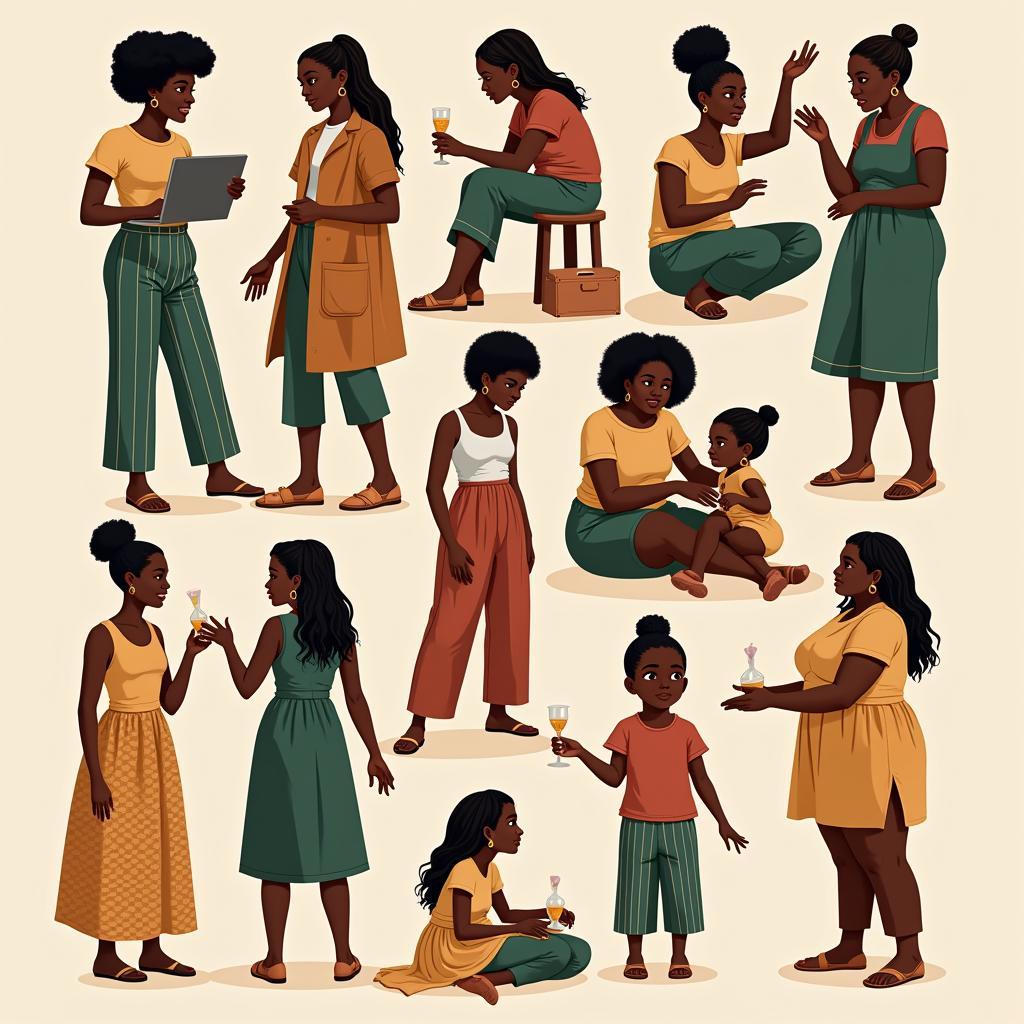African Devotion: Exploring the Spiritual Landscape of a Continent
African Devotion is a powerful and diverse expression of faith, deeply ingrained in the cultural tapestry of the continent. From ancient animistic beliefs to the vibrant presence of Islam and Christianity, Africa’s spiritual landscape is a rich mosaic of traditions, rituals, and practices that have shaped its history, art, and social fabric. This article delves into the captivating world of African devotion, exploring its multifaceted expressions and its enduring impact on the lives of millions.
The Ancient Roots of African Spirituality
Long before the arrival of organized religions, African cultures were deeply rooted in animistic beliefs, recognizing the sacredness of nature and the interconnectedness of all living things. This reverence for the natural world manifested in a profound respect for ancestors, spirits, and deities associated with various aspects of life.
“The concept of ancestral veneration is central to African spiritual traditions,” explains Dr. Abeni Oluwo, a renowned scholar of African religion and culture. “Our ancestors are seen as intermediaries between the living and the divine, their guidance and blessings are sought in all aspects of life.”
This ancestral reverence played a crucial role in shaping social structures, rituals, and artistic expressions. Many African societies developed intricate systems of rituals and offerings to appease the spirits and seek their guidance, fostering a sense of community and shared purpose.
The Rise of Islam and Christianity
The arrival of Islam and Christianity in Africa marked a significant turning point in the continent’s spiritual landscape. Islam, introduced through trade routes in the 7th century, spread rapidly across North and East Africa, leaving a lasting mark on architecture, law, and social customs.
“The spread of Islam across Africa has led to a rich interplay of cultural and religious influences,” notes Dr. Abdi Hassan, a leading expert on Islamic history in Africa. “We see this in the architecture of mosques, the vibrant art and music, and the unique interpretations of Islamic teachings that have emerged within different communities.”
Christianity, introduced by European missionaries in the 15th century, also took root in Africa, gaining a strong following in many regions. The blend of traditional beliefs with Christian teachings led to syncretic forms of Christianity, often characterized by unique rituals, music, and interpretations of scripture.
Syncretic Practices: Blending Tradition and Belief
One of the most fascinating aspects of African devotion is the phenomenon of syncretism, where traditional beliefs and practices are integrated with the tenets of Islam or Christianity. This blending of spiritual traditions creates a dynamic and fluid spiritual landscape, often characterized by unique interpretations of religious texts and rituals.
For example, in many parts of West Africa, the traditional worship of ancestors is incorporated into Christian practice, with churches dedicated to saints who are seen as intermediaries between God and the faithful.
“Syncretic practices demonstrate the resilience and adaptability of African spirituality,” emphasizes Dr. Nana Abena, a scholar of African religious studies. “These practices reflect the deep-rooted connection to tradition and the desire to find meaning and guidance in the face of changing circumstances.”
African Devotion in Contemporary Society
African devotion continues to thrive in contemporary society, playing a crucial role in the lives of individuals and communities. Religious institutions provide spiritual guidance, moral support, and a sense of belonging, while traditional practices offer a link to the past and a foundation for cultural identity.
From the vibrant church services in the bustling cities to the quiet ceremonies in rural villages, African devotion is a powerful force that shapes individuals and communities alike. It offers hope, resilience, and a sense of connection to something larger than oneself.
FAQ
Q: What are some of the most common traditional African religions?
A: Traditional African religions are diverse and vary widely across the continent. Some of the most common include:
- Animism: A belief system recognizing the sacredness of nature and the interconnectedness of all living things.
- Ancestor worship: The veneration of deceased ancestors, who are believed to be intermediaries between the living and the divine.
- Divination: Practices used to gain insight into the future, often involving rituals and the interpretation of signs.
Q: How does Islam impact African culture?
A: Islam has significantly influenced African culture in various ways, including:
- Architecture: The construction of mosques and Islamic schools.
- Law: The implementation of Islamic law (Sharia) in some societies.
- Social customs: The influence of Islamic traditions on marriage, dress, and family life.
Q: What are some examples of syncretic practices in Africa?
A: Syncretic practices are widespread in Africa. Some examples include:
- Candomblé: A syncretic religion practiced in Brazil that blends African deities with Catholic saints.
- Santeria: Another syncretic religion practiced in the Caribbean, incorporating Yoruba deities and rituals into Catholic practices.
- The integration of traditional healing practices into Christian churches in many parts of Africa.
Q: What is the role of devotion in African society today?
A: African devotion plays a vital role in contemporary African society, providing:
- Spiritual guidance: A source of hope, comfort, and moral direction.
- Community: A sense of belonging and support within religious institutions.
- Cultural identity: A connection to traditional beliefs and practices.
Conclusion
African devotion is a testament to the rich and multifaceted spiritual landscape of the continent. From the ancient roots of animism to the vibrant presence of Islam and Christianity, the continent’s spiritual traditions have shaped its history, art, and social fabric. As we continue to explore the depths of African devotion, we gain a deeper understanding of the cultural tapestry that defines this extraordinary continent.

